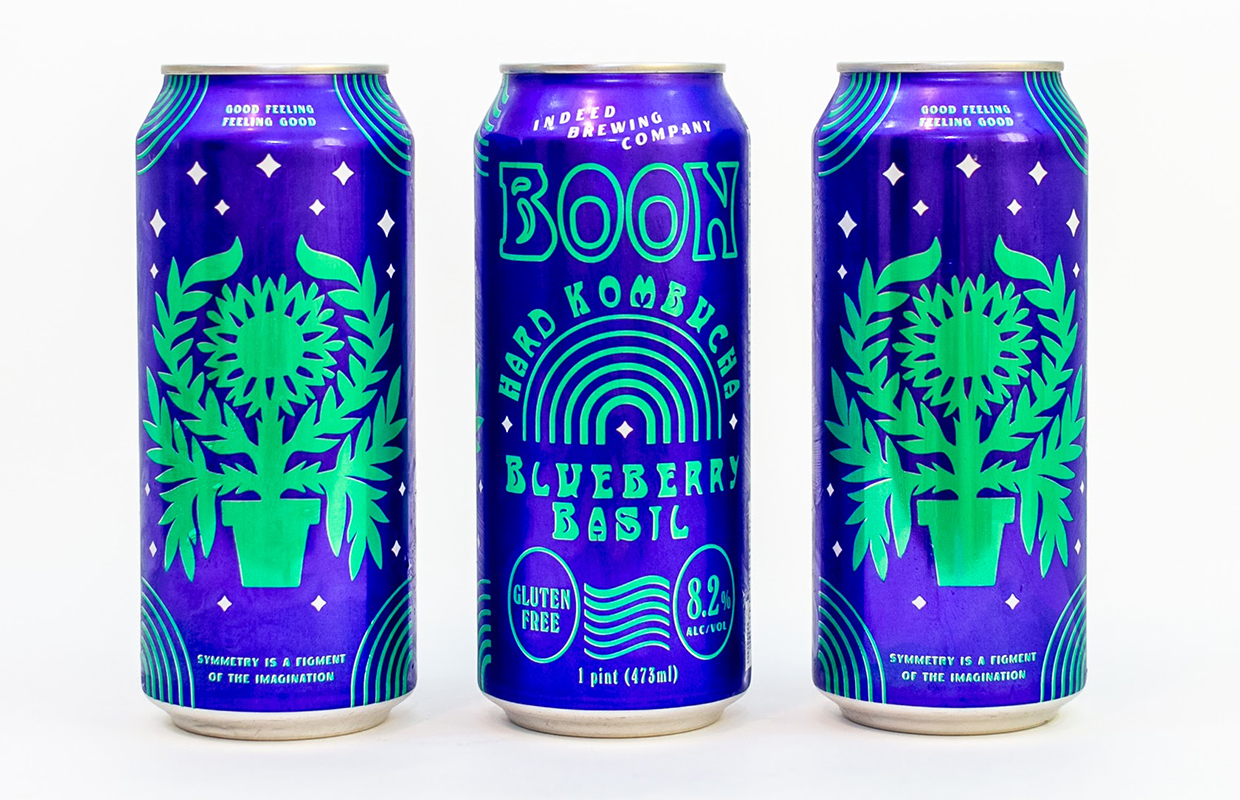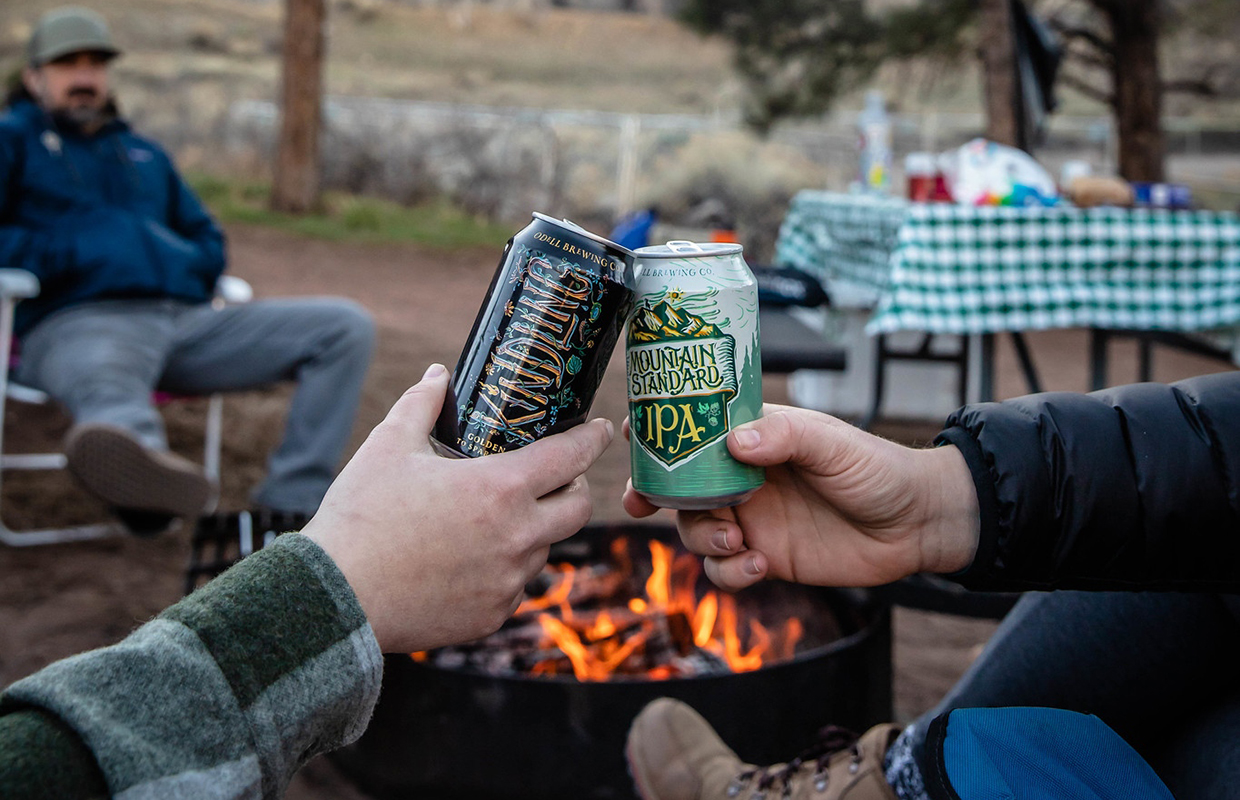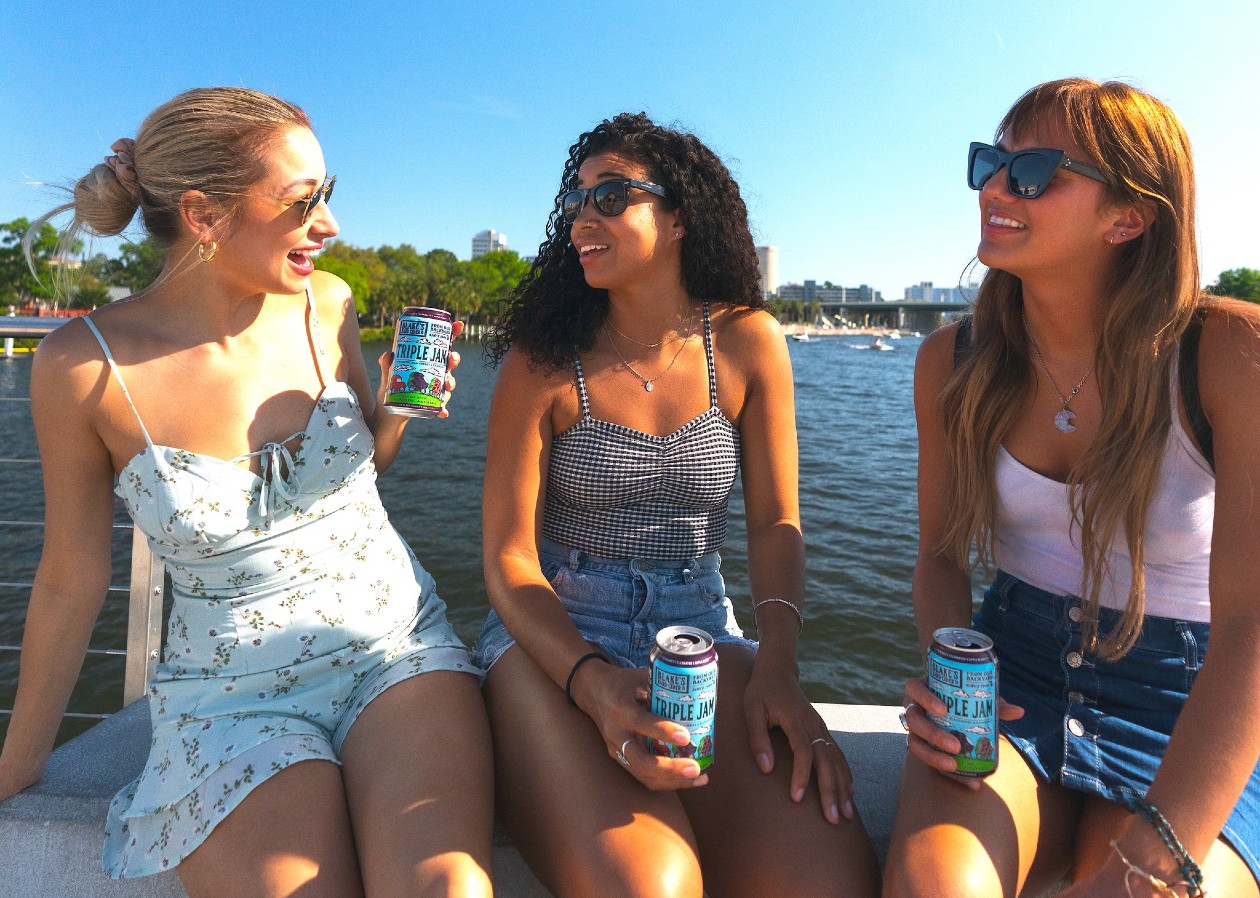
Expanding your brewery’s liquid portfolio doesn’t just mean flavors in the malt beverage category anymore as hard seltzer has taken a handle in many taprooms and beer bars as well. Indeed is furthering its reach to a different consumer along with adding education to its current base of fans with the canned release of Boon: Blueberry Basil, a hard kombucha made by the Minneapolis-based brewery.
It’s an intentional reach into a new market of drinkers — those that don’t drink beer and those that dabble across many types of alcohol and non-alcoholic drinks.
“This goes back to how craft beer drinkers are drinking across all channels — that includes a lot of cool N/A beverages,” said Indeed Sales Director Ryan Bandy. “There is a natural connection between a craft beer drinker and how they choose their craft N/A beverages. Since Boon is alcoholic (we haven’t released a N/A version yet), it’s a great gluten-free option as well as a totally different drinking experience.
“It’s got high acid, complex funk, and heavy fruit and herb flavors. It’s a great way to provide a way for craft drinkers to explore other channels but stick within our brand.”
Blueberry Basil was released on draft in the Minneapolis and Milwaukee taprooms in January, where it has received overwhelmingly positive feedback from patrons. The canned release is now out as well in Indeed’s retail markets.
READ MORE: Alternative Fermentation: The Tale of Two Kombuchas
“The main shift I’ve seen is the inclusion of all types of beverages, and the drinker shifting to drink across all channels, all beverages,” Bandy said. “Ten years ago, where you had a ‘beer drinker’, now you have a ‘drinker’, and craft drinkers will drink all three channels — beer, spirits, wine — within one occasion.
“That has pushed suppliers like us to expand our offerings and get excited about different beverages but all with an eye toward the craft of it.”
In July, Boon: Blueberry Basil was awarded Gold in the Hard Kombucha category of the 2021 Can Can Awards.
“My wildest hard kombucha dreams pale in comparison to what we’ve created with Boon,” said Indeed’s COO Kelly Moritz. “I knew it would be good, with all the fermentation know-how and creativity we have entrenched in this team, but I was blown away. It’s a vibrantly complex, unexpectedly crave-able, and very welcome addition to our line-up.”
Bandy said Indeed has always been a brewery that is excited by all types of fermentation and liquids.
“We’ve had some barrel-aged sours that, since we harvest solera style, have been going through weird fermentation and creation for six years,” he said. “We’ve also experimented quite a few times with tea: as infusions in beer, in the wort process, in post-fermentation, and such.
“So it kind of grew naturally out of our interest to experiment with fermentation and eventually push the boundaries of what ‘beer’ can be. Plus, it’s a delicious, funky beverage that has a lot of potential with all types of ingredients.”
Founding Brewer Josh Bischoff started experimenting with hard kombucha over a year ago to nail down a process and ingredients.
“For Boon, we use a blend of Green Mao Jin and Yerba Mate teas,” he said. “Oftentimes, black tea is used in kombucha, but we have found that it makes for a more acidic final product and preferred the profile that using a blend provides.”
Boon starts in an oak barrel to begin its natural fermentation process and is finished off in a bright tank, where the flavors are added. In addition to the traditional kombucha process, Boon goes through a secondary fermentation process that produces the alcohol to make it a hard kombucha.
“They are actually really similar, especially compared with making barrel-aged sours, where time and oxygen are the main ingredients after we put it in the second vessel,” Bandy said. “It’s all about the secondary fermentation — when we take finished wort or beer and put it in a vessel with different wild yeasts and bacterias to ferment more complex compounds that the original brewer’s yeast doesn’t break down.
“The difference with hard kombucha is the SCOBY; that thing is crazy in its abilities to break down, create, break down again, re-create, ad infinitum. That’s where you get all those really cool esters and unique acidic compounds.”
Licensing for Indeed was pretty straightforward since the alcohol is still derived from malt, Bandy explained.
“So it’s technically a ‘Kombucha-Style’ beer that falls under our existing production license,” he said.
The brewery has — and is excited to — invest in Boon.
”We were lucky because we have a pretty developed barrel-aged sour program: different warehouses, different production equipment, and such,” Bandy pointed out. ”We were able to do the R&D in that facility, and have been scaling up alongside our foeders that house our mixed culture beers.”
The brewery has hired one production employee that focuses on all mixed fermentation liquids — hard kombucha and wild beers.
”We saw the opportunity of our existing infrastructure to be able to expand beyond beer liquids without the level of investment that it might take other breweries,” he said.




Be the first to comment